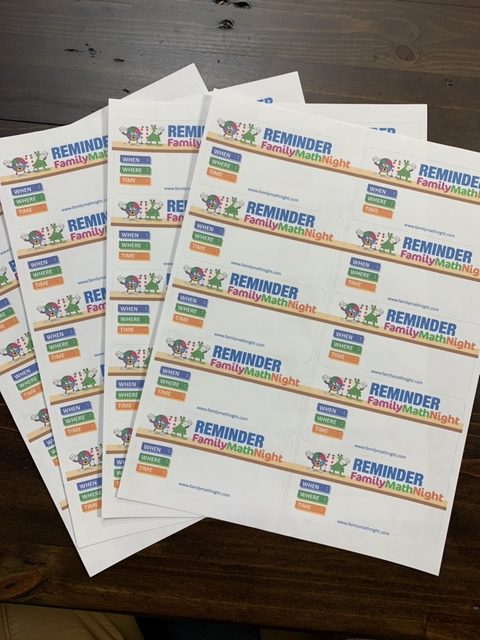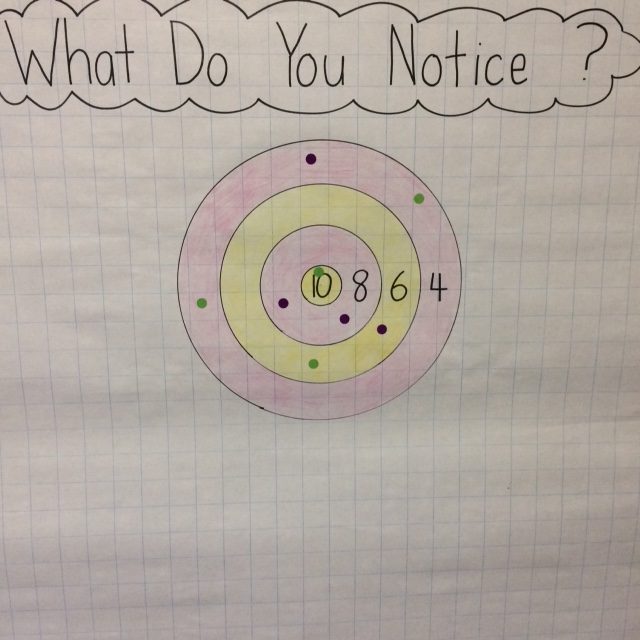Family Math Night Reminder Stickers

We updated the Reminder Stickers in our Nifty Numbers, Math Medley, and Gellin’ with Geometry Family Math Night kits. We even included text boxes so that you can customize them with your specific event. These are perfect to send home with the little ones to remind families of your event. Simply apply them to their shirt as they walk out the door at the end of the day. Easy peasy. And what’s really fun is to watch kids show up to the Family Math Night wearing their sticker!

